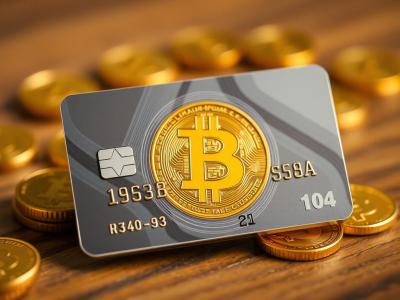
Consider utilizing multicurrency wallets to enhance your financial management. These digital wallets support various currencies, providing the flexibility needed for seamless transactions across different platforms and regions. By integrating multiple currencies into a single wallet, users can reduce conversion fees and streamline their financial activities.
The exploration of multicurrency options reveals significant advantages in both security and accessibility. With robust encryption methods, these wallets ensure that your funds remain secure while allowing for quick access to diverse currencies. This dual focus on security and convenience enhances overall transaction efficiency.
In the rapidly evolving finance sector, adopting a multicurrency wallet is not merely an option; it's a strategic move. As global commerce continues to expand, having the ability to manage various currencies effortlessly will position you advantageously in the marketplace. This approach not only simplifies transactions but also empowers individuals and businesses to capitalize on fluctuating currency values.
Choosing the Right Wallet
Select a wallet that prioritizes security features, such as two-factor authentication and multi-signature options. This ensures your assets remain protected from unauthorized access.
The flexibility of managing various currencies in one place can enhance your financial operations. Look for wallets that support a wide range of cryptocurrencies to maximize your transaction possibilities.
Evaluate user experience; an intuitive interface simplifies management. A wallet should allow for easy navigation and quick access to features like balance checking and transaction history.
Consider the wallet's compatibility with different platforms, including mobile and desktop. This versatility is critical for seamless transactions on-the-go or from multiple devices.
Diversity in supported tokens can enhance potential investment opportunities. Ensure the wallet accommodates both major currencies and lesser-known altcoins to facilitate broader market exploration.
Research community feedback regarding the wallet’s reliability during peak usage times. A proven track record indicates trustworthiness in handling high-volume transactions without delays or issues.
Lastly, assess ongoing updates and customer support availability. A responsive team signals commitment to maintaining security standards and addressing user concerns promptly.
Managing Currency Exchange Rates
Regular monitoring of currency exchange rates is fundamental for any user of multicurrency wallets. Utilize reliable financial news sources and real-time market data to stay informed about fluctuations. This proactive approach aids in making well-timed transactions that capitalize on favorable rates.
Diversity in currency holdings enhances security against drastic market shifts. By holding a range of currencies, users can mitigate risks associated with any single currency's volatility.
Implement automated alerts within your wallet application to notify you when certain currencies reach desired exchange rates. This feature streamlines management by allowing you to act swiftly without constant manual checks.
Consider employing analytical tools that provide insights into historical trends and predictive modeling. Such resources facilitate informed decision-making regarding which currencies to hold or convert, optimizing transaction outcomes.
Flexibility is key; therefore, ensure your wallet supports multiple fiat and digital currencies. This capability not only broadens exploration opportunities but also allows for strategic positioning based on market conditions.
Lastly, be cautious with transaction fees associated with currency exchanges. Comparing different wallets for their fee structures can lead to more cost-effective management of your currency assets, maximizing the overall efficiency of your transactions.
Security Features to Consider
Prioritize multi-layered security protocols when selecting a multicurrency wallet for digital transactions. Here are key features to evaluate:
- Two-Factor Authentication (2FA): Ensure the wallet supports 2FA to add an extra layer of protection against unauthorized access.
- Encryption: Look for wallets that employ robust encryption methods for data storage and communication, safeguarding sensitive information.
- Backup Options: Reliable wallets should offer secure backup functionalities, allowing users to restore their currency holdings in case of device loss or failure.
- Custodial vs. Non-Custodial: Assess whether you prefer a custodial wallet, where a third party manages your assets, or a non-custodial option that grants full control over your private keys.
- Regular Security Audits: Choose wallets that undergo regular security assessments by independent experts, ensuring vulnerabilities are addressed promptly.
- User Activity Monitoring: A wallet that provides alerts on unusual transaction activity can enhance the security of your funds by enabling swift action against potential threats.
The diversity of currencies necessitates a rigorous approach to security. Each feature contributes significantly to protecting your digital finance from cyber threats while maintaining flexibility in transactions.
Incorporating these security elements will enhance the overall safety of your multicurrency wallet, allowing for confident exploration of various currencies without compromising on protection.
Integration with Payment Systems
Integrating multicurrency wallets with diverse payment systems enhances transaction flexibility. Prioritize compatibility with popular platforms such as PayPal, Stripe, and local payment gateways to facilitate seamless transactions across various currencies.
Select wallets that support APIs for easy integration. This allows for efficient management of financial operations and reduces friction during currency exchanges. Test the integration process thoroughly to ensure reliable performance under different scenarios.
Focus on security measures during integration. Utilize encryption protocols and secure access methods to protect sensitive financial data. Regularly update software to mitigate vulnerabilities that could arise from third-party integrations.
Monitor transaction fees associated with each payment system. Some providers may impose additional charges for currency conversions or international transactions, impacting overall financial management. Choose systems that offer competitive rates while maintaining high service quality.
Evaluate user experiences when integrating with payment platforms. Feedback from other users can provide insights into potential issues or advantages, aiding in informed decision-making regarding wallet selection and system compatibility.


You can be the first!